Education: Parents face fight over support for children
- Published
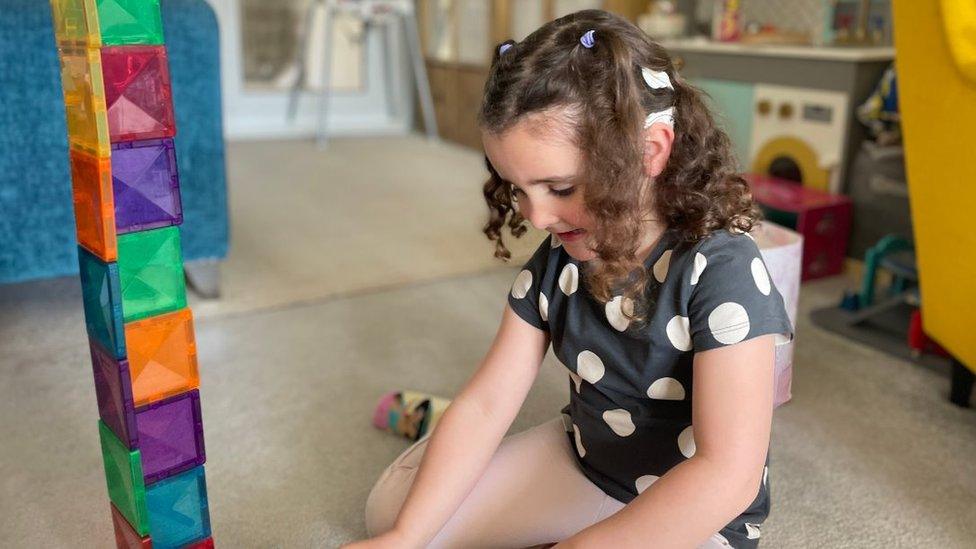
Lola is now attending a mainstream primary after her local council changed its mind over help
A fight or battle, that is how some parents describe getting extra support for their children in school, despite reforms meant to make it easier.
One mother, Ros, said she was "flabbergasted" when she was told her profoundly deaf four-year-old would not get an Individual Development Plan, external.
This is a key document to help a child with additional learning needs (ALN).
The aims of ALN reforms have been welcomed but there are concerns over budget and workloads.
A timeframe for introducing changes has been extended until 2025 by the Welsh government.
Lola received cochlear implants, which allows deaf people to process sounds and speech, when she was one after failing new-born hearing screening tests.
Ros said she had done "phenomenally well" in nursery and Lola would go to a mainstream primary school in September, but it was only after she questioned a decision not to give Lola an IDP that her local council changed its mind.
"This is a profoundly deaf child that relies 100% on implants and technology to be able to access any sound whatsoever.
"I would have thought it would have been an absolute no-brainer that she would have an IDP," Ros said.
"We've struggled to get her IDP and I had to fight it... but there are going to be other families experiencing this and they need to be aware that they can challenge and absolutely argue against the decisions that are being made and they need to fight for what's right for their children."
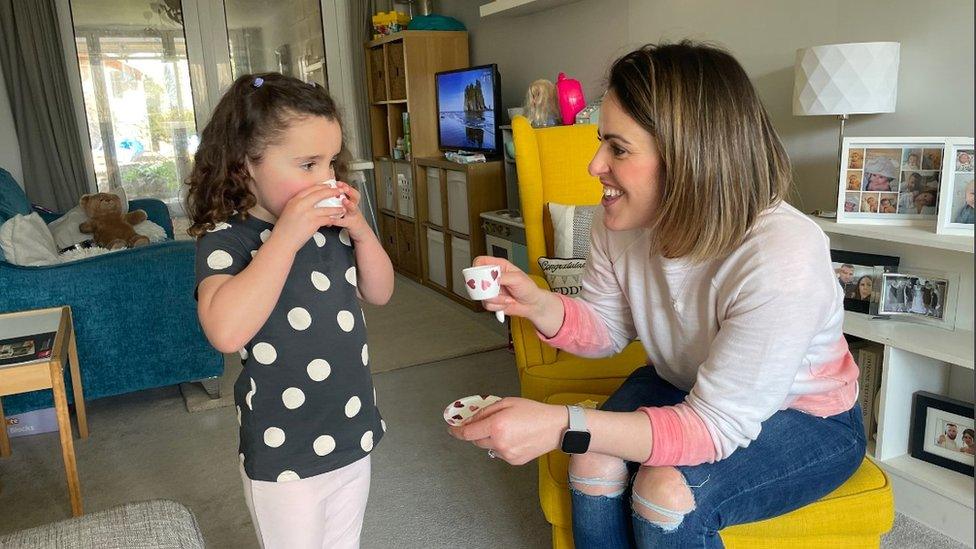
Ros believes Lola should be getting more support
The National Deaf Children's Society said it was concerned about a "raising of the bar" for eligibility for extra support under the new system.
Welsh government figures showed there were 74,661 pupils with ALN in schools (15.8% of all pupils) as of February 2022, down from 92,668 (19.5%) in April 2021.
Ministers have said they are keeping the data under review but inconsistent reporting in the past could be one reason for the figures.
Jo from Swansea said she was "really concerned and worried" about the changes which could have an impact on two of her four children.
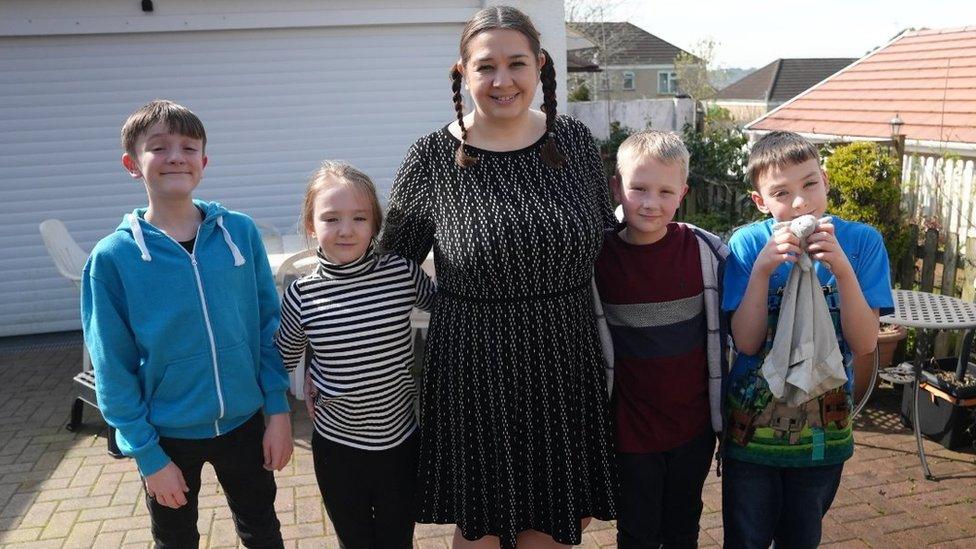
Jo is concerned for two of her four children
"It's really challenging to get support for any child… to have the constant battles for any level of support is so draining it really affects the whole family," she said.
Her eldest and one of her twins both have additional needs and have statements, which are documents outlining support for children with the most complex needs.
They will be phased out as children with all levels of need will be given Individual Development Plans with the aim of simplifying the system.
Jo said she supported aspects of the reforms but said there was still a lot of uncertainty while pupils are moved from the previous special educational needs system.
"We're getting delays because people are challenging the fact that this has been rolled out too quickly and we've got hiccups, and these children shouldn't be the hiccups.
"Their lives have been affected enough by Covid that we do not need more problems. Just slow it down."
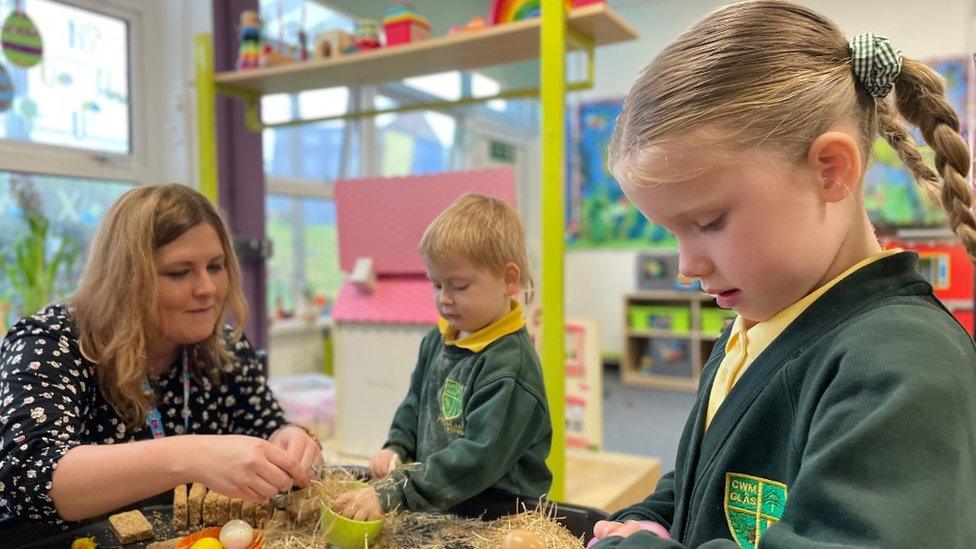
ALN reforms in Wales were introduced in 2021
The Welsh government said learners were at the heart of the new system and their views and those of parents were considered throughout.
"Parents should not have to battle to get suitable support to meet their child's individual needs," a spokesman said.
Since 2021, children have been moved to the new system in groups, but earlier this year, Education Minister Jeremy Miles announced that more time would be given because of feedback from staff.
The National Education Union said a further delay was needed amid worries about workload and budgets.
Executive member Elizabeth McLean said staff were "fully supportive" of the aims of the reforms but said members had complained of "drowning in paperwork", with reports of ALN coordinators going into work ill in order to clear their work.
"Slowing the process down even further would be actually really beneficial in the long run," she added.
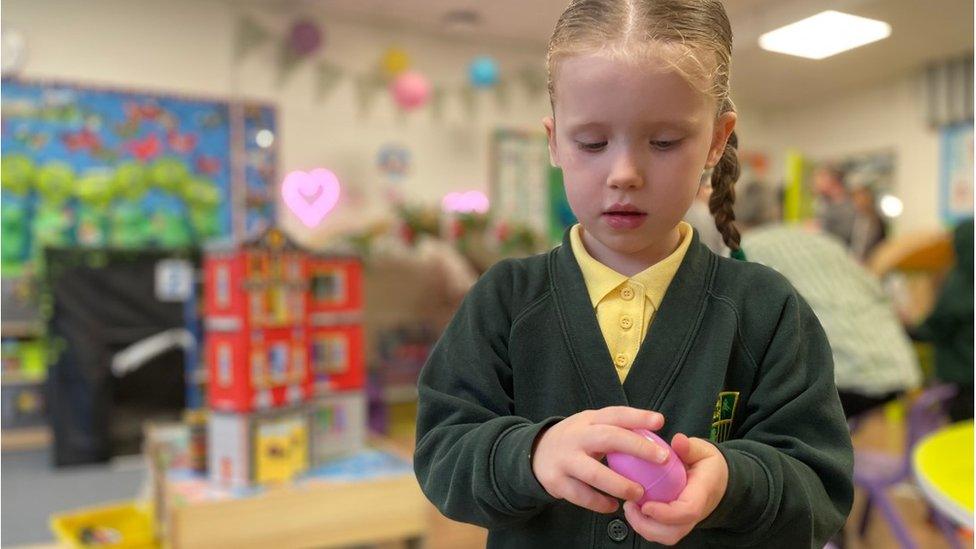
Staff at Cwm Glas Primary have come up with their own strategy to look at what needs the children have
The right of every child to go to their local school, whatever their needs, is at the heart of what they do at Cwm Glas Primary School in Swansea, the headteacher said.
At the start of this academic year they set up Little Acorns for the younger pupils who would have struggled all day in a mainstream class.
By getting targeted support in the morning in a different area they are ready to join classmates in the afternoons and play a full part in school life.
Head teacher Neil Craven-Lashley said the school worked closely with the local authority to "make sure that every penny was being really carefully deployed for additional learning needs".
Through Little Acorns they have the "space and time" to assess whether a child's learning needs may have been made worse by the pandemic, and decide on longer-term support.
By offering extra support in the mornings "these boys and girls can go to Cwm Glas, their local school, be part of a mainstream setting in the afternoons so that they still have those relationships and friendships with their peer group".
- Published3 November 2022
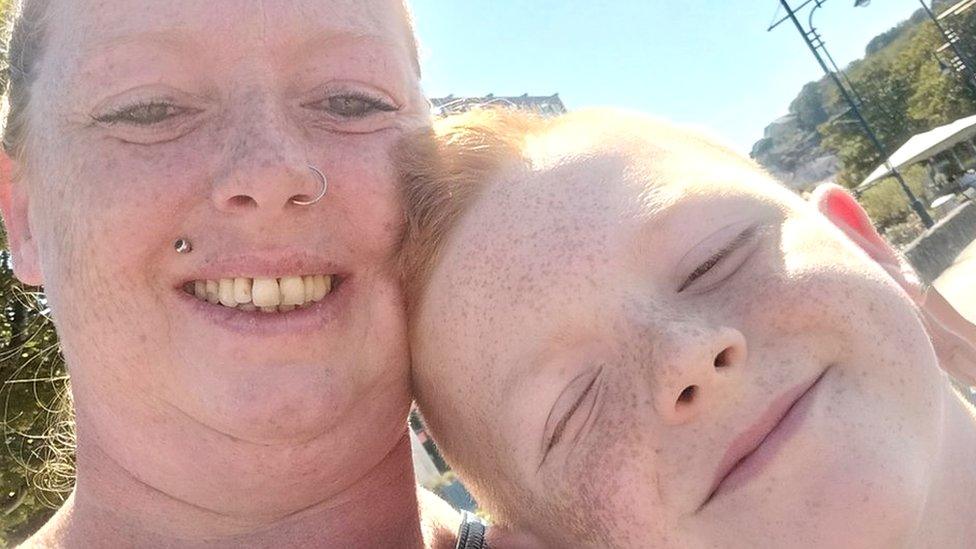
- Published21 September 2019
